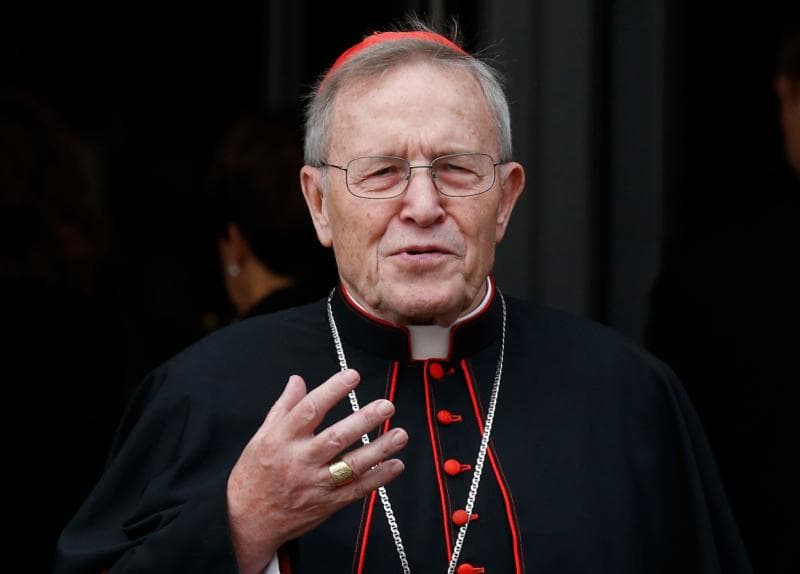ROME – A German prelate widely considered to be one of Pope Francis’s closest allies has said the current clerical abuse crisis is being used by papal opponents as a platform to expel Francis from the papacy and to elect a new pontiff that suits their agenda.
“There are people who simply don’t like this pontificate. They want it to end as soon as possible to then have, so to say, a new conclave. They also want it to go in their favor, so it will have a result that suits their ideas,” said German Cardinal Walter Kasper in a new interview.
Kasper, president emeritus of the Pontifical Council for Promoting Christian Unity, spoke of Francis and the current clerical sexual abuse crisis in a recent edition of the “Report München” program, broadcast by German state broadcaster ARD.
In the episode, which also features interviews with American Cardinal Raymond Burke and Irish abuse survivor Marie Collins, Kasper argued that there are some camps in the Church that are taking advantage of the abuse crisis as a platform for expelling Francis from the papacy.
Burke was one of four prelates who penned and published five “dubia” — or questions — about Francis’s 2016 post-synodal apostolic exhortation, Amoris Laetitia, which opened a cautious door for divorced and remarried Catholics to receive communion.
At the time, many argued that the document was confusing, ambiguous and difficult to interpret, and while the discussion has died down in the past three years, it has not gone away.
However, quite apart from doctrinal matters, there has also been debate over Francis’s temperament and style of governance, portrayed in Henry Sire’s 2017 book, The Dictator Pope, which cited inside Vatican sources who painted the picture of a moody Francis prone to losing his temper, using vulgar language and seeking control.
In an Aug. 26, 2018, letter published on the last day of Francis’s overnight trip to Dublin for the World Meeting of Families, Archbishop Carlo Maria Viganò, who served as papal envoy to the United States from 2011-2016, accused Francis of ignoring allegations of misconduct against ex-Cardinal Theodore McCarrick, currently under investigation for three charges of abusing minors, and called for the pontiff to resign.
In the immediate aftermath, many naturally sought to verify Viganò’s claims, however, many also questioned the letter’s intent, as it had been published on the tail end of a high-stakes trip for Francis, where he was facing immense pressure over his handling of the abuse crisis in Ireland after a summer of fresh scandals in the U.S. with the publication of the Pennsylvania Grand Jury Report and the revelations of abuse and misconduct allegations against McCarrick.
An odd mix of righteous indignation, seemingly hard facts, personal innuendo and ideological undertones, calling out a so-called “gay lobby” inside the Vatican, Viganò’s letter succeeded in discrediting Francis on the abuse issue for some, particularly among American Catholics.
In his comments on ARD, Kasper said papal opponents are using an “inappropriate” strategy of turning the discussion on the abuse issue “into a discussion about Pope Francis,” which he said amounts to “an abuse of abuse.”
“This diverts attention from the real problem, and this is the bad part of it,” Kapser said, adding that to turn the discussion into one on the Francis pontificate “is distracting us” from focusing on more important matters, such as developing better “means of prevention” when it comes to protecting minors from abuse.












